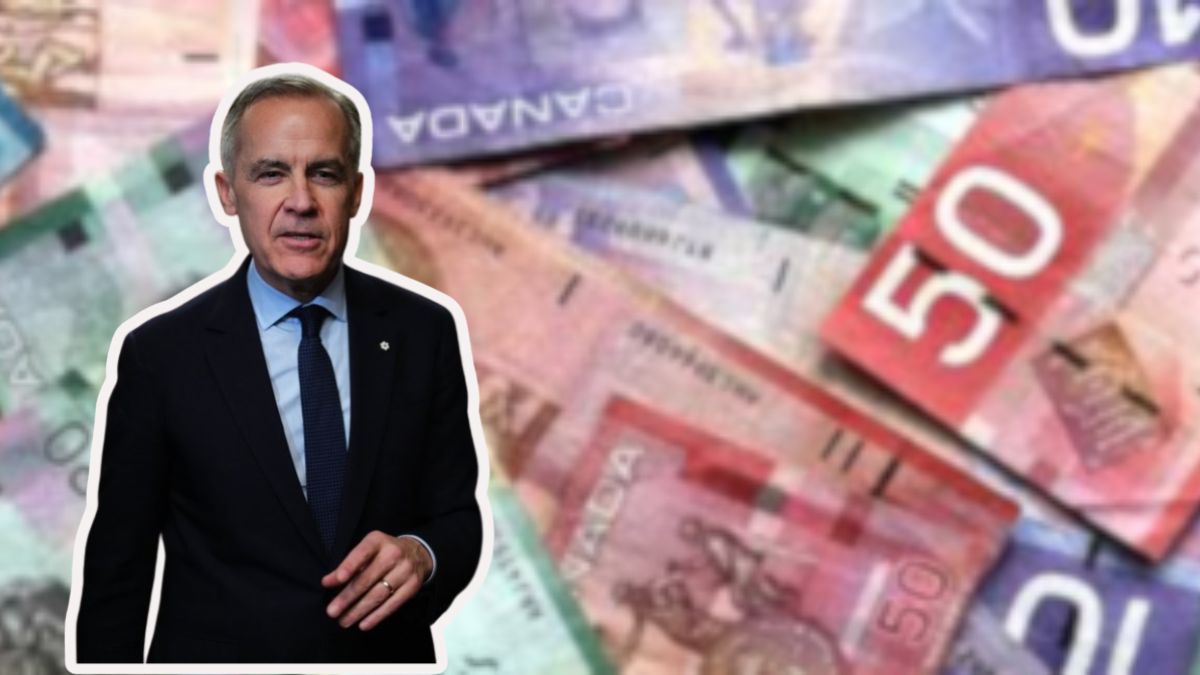With inflation still cutting into Canadian paycheques and essential expenses like food, rent, and utilities climbing, the federal government is taking direct action. The Canada Revenue Agency (CRA) has confirmed a one-time GST/HST rebate worth up to \$3000 scheduled to roll out starting July 2025.
This targeted payment is designed to help lower- and middle-income Canadians weather ongoing cost-of-living pressures. Unlike the regular quarterly GST/HST credit, this is a special lump-sum relief payment aimed at providing immediate financial support.
If you’re wondering who qualifies, how much you’ll get, and what you need to do to receive it, here’s your complete breakdown.
What Is the \$3,000 GST Rebate?
The \$3,000 GST rebate is a one-time financial relief measure separate from the standard GST/HST credit Canadians usually receive four times a year.
While the regular GST/HST credit is meant to offset a portion of the sales tax Canadians pay throughout the year, this special rebate is a direct cash boost targeted at households that are struggling most with rising living costs.
The CRA will deposit the payment once—not quarterly—making it an emergency measure rather than an ongoing benefit.
Who Qualifies for the Rebate?
The CRA has outlined clear eligibility criteria to determine who will receive the payment:
- Citizenship and Residency – You must be a Canadian citizen, permanent resident, or hold a valid Canadian visa. You also need to be living in Canada at the time the payment is issued.
- Age Requirement – You must be 19 years of age or older by the end of 2025.
- Income Level – The payment targets low- and middle-income earners. Higher-income households may receive a reduced amount—or may not qualify at all.
- Tax Filing – You must have filed your 2024 income tax return so that the CRA can determine your eligibility and calculate the payment amount.
- Family Status – Both single individuals and couples can qualify. Families with children under 19 may receive higher amounts, provided the children are listed as dependents on their 2024 tax return.
Important: Temporary residents, foreign visitors, and individuals without permanent legal status in Canada are not eligible.
How Much Could You Receive?
The payment amount will vary based on your family size, dependents, and total household income.
- Minimum payment: \$250
- Maximum payment: \$3,000 (for larger families with multiple dependents and lower income levels)
Most single individuals are expected to receive between \$250 and \$650, while families—particularly those with several dependent children—could receive much higher amounts.
Key factors affecting your payment:
- Reported total household income on your 2024 tax return
- Number of dependent children under 19
- Marital or common-law status
Official Payment Dates
While this is a one-time rebate, eligible Canadians may see it aligned with GST credit payment cycles for efficiency. The CRA has indicated the following payment schedule for 2025–2026:
| Payment Period | Expected Payment Date |
|---|---|
| July 2025 | July 4, 2025 |
| October 2025 | Mid-October 2025 |
| January 2026 | Mid-January 2026 |
If you qualify for both the regular GST/HST credit and this special rebate, you could receive both payments in the same month—either in separate deposits or combined.
How to Receive the Payment
One of the advantages of this rebate is that there is no separate application process. If you meet the eligibility criteria and have filed your 2024 tax return:
- Automatic Processing – CRA will assess your eligibility and send the payment without any extra forms.
- Direct Deposit – If you’re registered for direct deposit, funds will be deposited straight into your bank account under “Canada GST/HST Credit” or similar.
- Cheque by Mail – If you are not registered for direct deposit, a paper cheque will be mailed to your address on file.
Tips to avoid delays:
- Ensure your banking details are updated in CRA’s My Account portal.
- Verify your mailing address is correct.
- File your 2024 taxes as early as possible.
If the expected payment date passes and you haven’t received your rebate, log in to your CRA My Account to check your payment status. If it’s still missing, contact the CRA Benefits Inquiry Line.
Why This Payment Matters Now
With consumer prices rising faster than wage growth for many Canadians, this rebate serves several purposes:
- Immediate financial relief for urgent expenses like rent, groceries, and utilities.
- No-strings spending – recipients can use the money however they see fit.
- Support for the most vulnerable, especially low- and middle-income households facing ongoing inflation.
It also demonstrates the federal government’s attempt to respond quickly to economic pressures without creating a long-term program that requires major new infrastructure or application processes.
How You Can Use the Rebate
There are no restrictions on how you spend this money—it’s yours to use where you need it most. Canadians are likely to apply the rebate to:
- Housing costs – rent, mortgage, or property taxes
- Groceries and household items
- Utilities and internet bills
- Medical or dental expenses not covered by insurance
- Debt repayment or emergency savings
For households living paycheque to paycheque, even \$500 to \$3,000 can provide much-needed breathing room.
Why This Matters for Canadians
This special rebate:
- Reduces short-term financial strain for households feeling the pinch from inflation.
- Acknowledges the gap between earnings and expenses for many Canadians.
- Ensures support is targeted by linking payments to 2024 tax return data.
For many, it’s not just about extra money—it’s about financial stability in an unpredictable economic environment.
Final Takeaway
The CRA \$3,000 GST rebate is a rare, one-time benefit that could provide meaningful relief to millions of Canadians this year.
To make sure you don’t miss out:
- File your 2024 taxes promptly.
- Double-check your banking and mailing details in CRA’s My Account.
- Monitor your account and CRA announcements for updates.
Payments begin July 4, 2025, with follow-up GST credit cycles in October and January—making mid-2025 a crucial time for eligible Canadians to watch their accounts.
If you qualify, this could be a timely cushion against the rising cost of living—money you can use for whatever matters most to your household.
3 SEO-Friendly, Curiosity-Driven Headlines
- CRA’s \$3,000 GST Rebate Hits July 2025 – Who Gets It and How Much You’ll Receive
- One-Time \$3,000 GST Payment Coming – Eligibility Rules and Key Dates Revealed
- Canada’s \$3,000 GST Rebate 2025 – How to Secure Your Payment Without Applying
5 SEO-Optimized FAQs
Q1: When is the \$3,000 GST rebate being paid?
The first payments start July 4, 2025, with additional GST credit cycles in October 2025 and January 2026.
Q2: Do I need to apply for the rebate?
No, the CRA automatically determines eligibility from your 2024 tax return.
Q3: Who qualifies for the \$3,000 GST payment?
Low- and middle-income Canadians aged 19 or older, with citizenship or permanent residency, and a filed 2024 tax return.
Q4: What if I don’t get the payment on time?
Check CRA’s My Account, verify your banking details, and contact the CRA Benefits Inquiry Line if the issue persists.
Q5: Is the rebate taxable income?
No, the \$3,000 GST rebate is tax-free and will not affect other government benefits.






